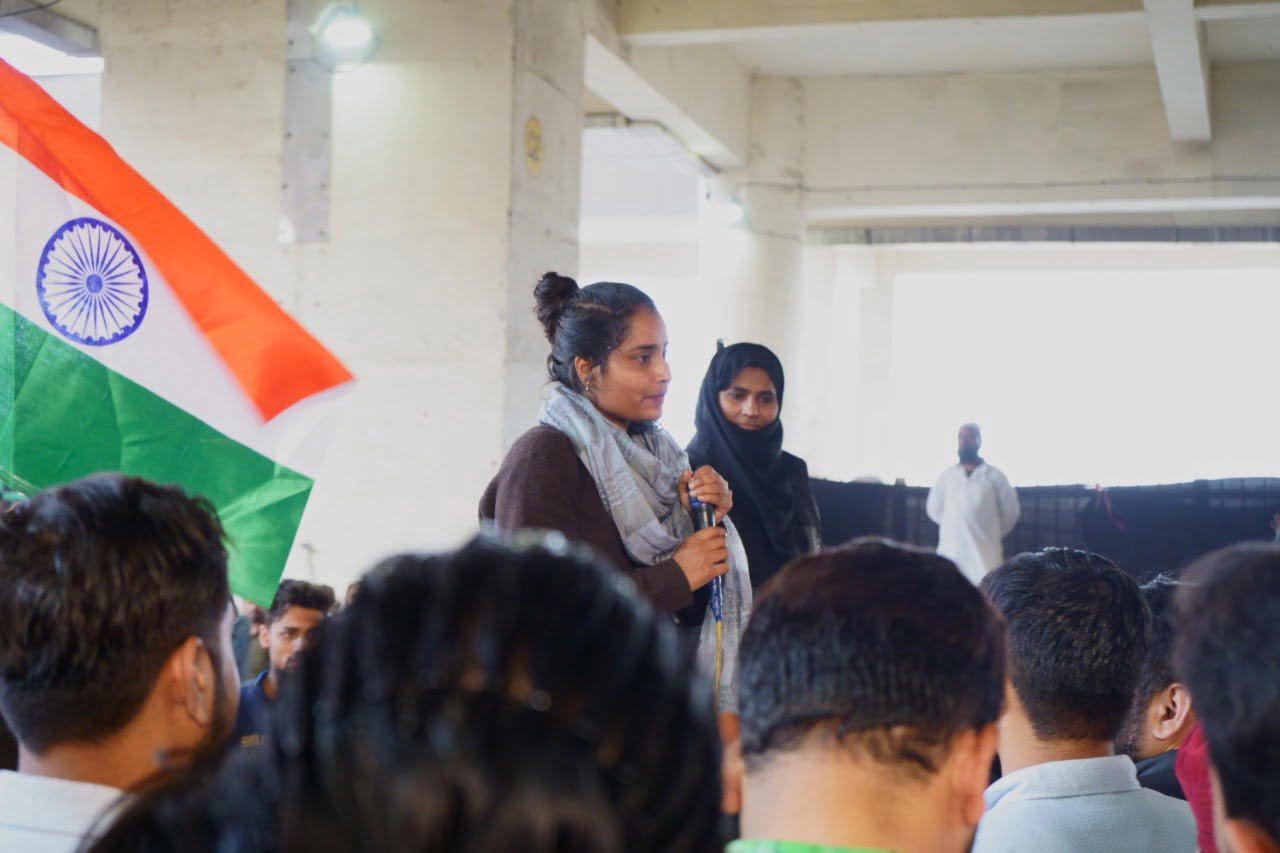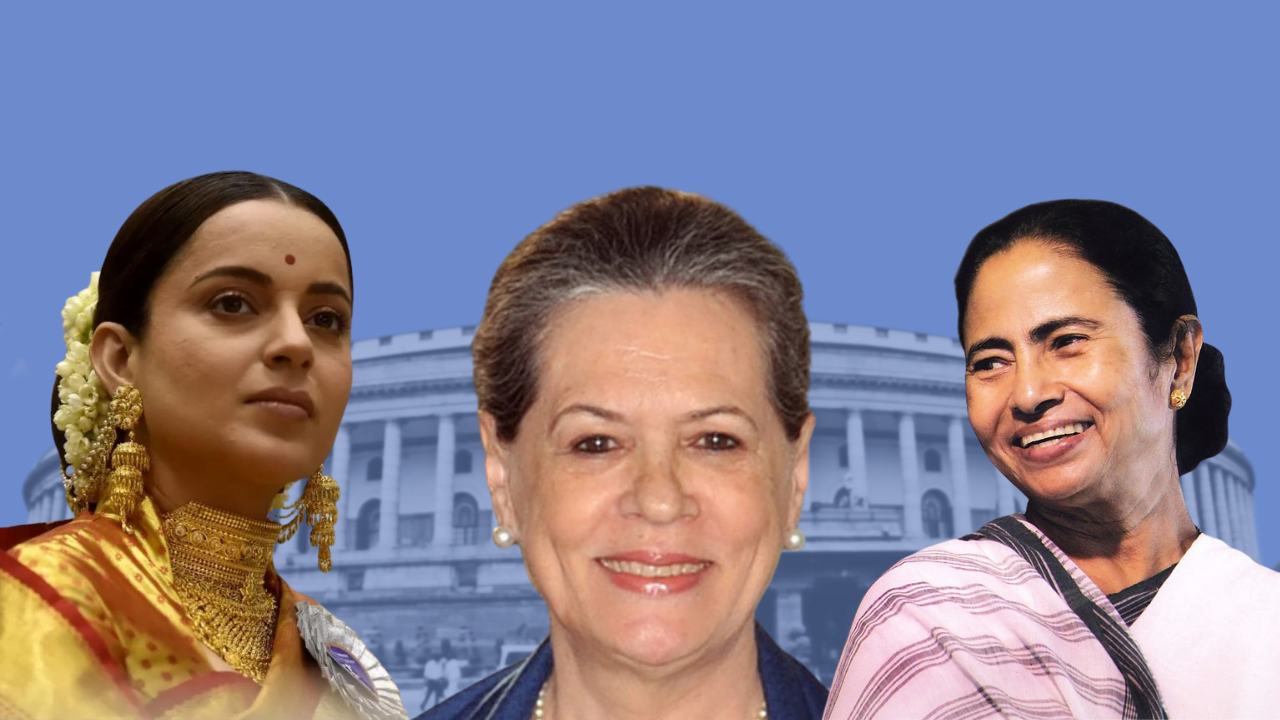Trigger Warning: Mentions rape
The concept of “freedom” in India is often fraught with intense emotions, causing discomfort, fear, and doubt for many citizens. While India’s growing globalisation is touted as a sign of progress, particularly with the popularity of certain Indian celebrities on the internet and media, it is important not to overlook the hypocrisy of the Indian state’s response to freedom — of speech, innocence, legal aid, and life. To celebrate some of India’s cultural contributions while ignoring these systemic issues does a disservice to the country and its people, and risks erasing these violations of freedom from the collective memory of the world.
It isn’t hard to realise the glaring violation of human rights and dignity in India when we juxtapose the vast difference in the treatment of these two groups of people, that is, the 11 convicted of gang rape being celebrated and welcomed back to “freedom”, and the hundreds incarcerated and oppressed based on unfounded suspicion and fear of dissent. It is also strikingly apparent that those targeted by the State using UAPA are from minority communities, especially Muslims, Dalits, and Adivasis.
Referring specifically to the blatant bias within the legal and policing institutions of the country, for instance, on one hand, India approved the early release of 11 Hindu men sentenced to life in prison for the gang rape of a pregnant Muslim woman and the murder of 14 members of her family during the 2002 anti-Muslim riots.
On the other, there is a chilling pattern of unsubstantiated arrests and repression of dissenting voices by the current government as they use the Unlawful Activities (Prevention) Act against many like Ishrat Jahan, Tasleem Ahmad, Meeran Haider, Shadab Ahmed, Athar Khan, Umar Khalid, Sharjeel Imam, Salim Mallick, Salim Khan, Khalid Saifi, Tahir Hussain, and Shifa-ul-Rahman. Oftentimes, the arrests made using UAPA are without adequate proof and non-bailable.
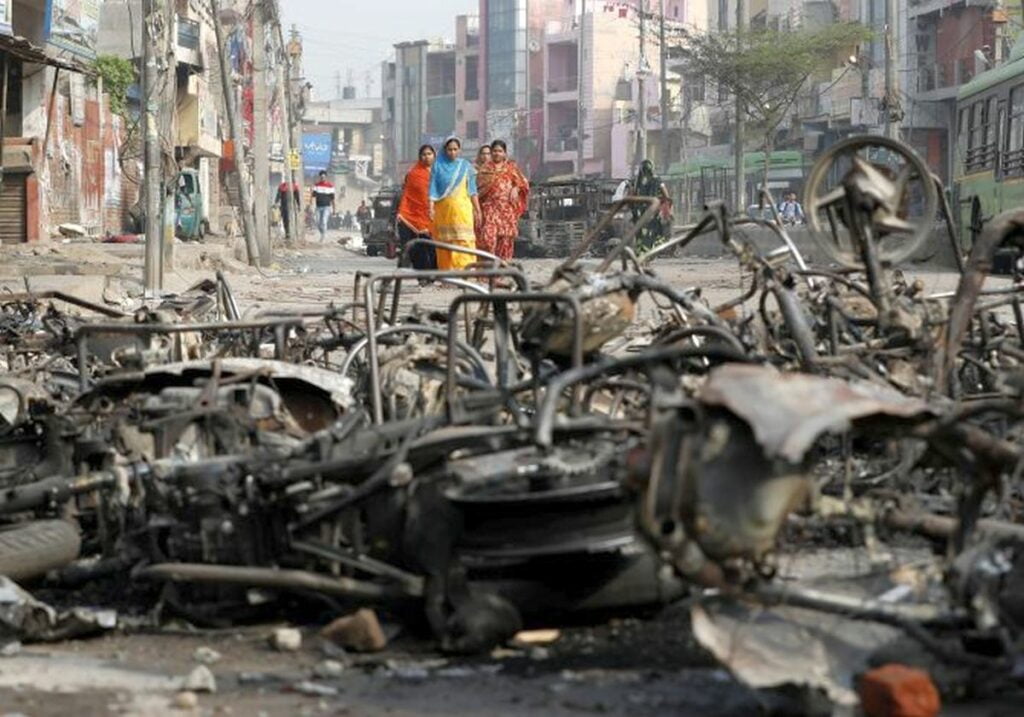
It isn’t hard to realise the glaring violation of human rights and dignity in India when we juxtapose the vast difference in the treatment of these two groups of people, that is, the 11 convicted of gang rape being celebrated and welcomed back to “freedom”, and the hundreds incarcerated and oppressed based on unfounded suspicion and fear of dissent. It is also strikingly apparent that those targeted by the State using UAPA are from minority communities, especially Muslims, Dalits, and Adivasis.
Gulfisha Fathima is one of many activists targeted by the Delhi Police for her vocal dissatisfaction with the CAA and the NRC. She was arrested on 8th April 2020 and is yet to receive bail, despite her completing 3 years of incarceration.
When the anti-CAA and NRC protests broke out in India, Gulfisha was living on her own in North Delhi. She tried to persuade her parents to allow her to go to Shaheen Bagh but they were adamant, “It’s too far from where you live”, they said. However, when she heard about the Seelampur demonstrations, she was ready to participate. Even though she wasn’t part of any student groups or political parties, she felt included in the vulnerability of the women protesting around her.
The story goes back to 2020; specifically, the anti-CAA and NRC protests and Delhi riots. When the anti-CAA and NRC protests broke out in India, Gulfisha was living on her own in North Delhi. She tried to persuade her parents to allow her to go to Shaheen Bagh but they were adamant, “It’s too far from where you live”, they said. However, when she heard about the Seelampur demonstrations, she was ready to participate. Even though she wasn’t part of any student groups or political parties, she felt included in the vulnerability of the women protesting around her.
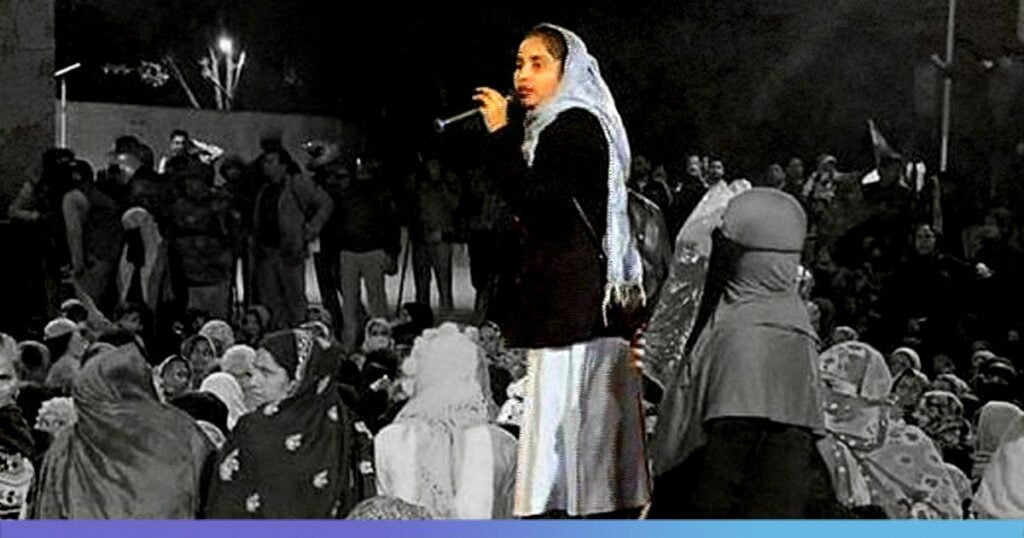
She found her way of making a difference real quick – by teaching the Hindi and English alphabet to the women at the protest site. One day while walking back home from the sit-in, she also told her brother, Atiq, that she wanted to pursue a PhD after her MBA.
Like Gulfisha, many vocal activists and journalists have been arrested under the Unlawful Activities (Prevention) Act (UAPA). A disproportionate amount of arrests under the UAPA have targeted minorities and also intellectuals, political critics, trade unionists, lawyers, and activists. The UAPA is modelled on the previous anti-terrorist laws of India, which have already been discredited due to their ample misuse by the police and extremely unconstitutional measures.
But none of this mattered to the Delhi Police. Irked by the boldness of a young Muslim woman speaking up against the government, they arrested Fatima for charges of rioting and assaulting a public servant. Before she could apply for bail, they booked her for “conspiracy” under the UAPA, amongst other acts. She was also linked to the death of an 18-year-old Muslim man, Amaan, 5 months after that FIR was registered. Even though she received bail for all other cases, she remains in jail 3 years later because of the UAPA.
Also Read: Feminist Solidarity To Sharjeel Imam
Like Gulfisha, many vocal activists and journalists have been arrested under the Unlawful Activities (Prevention) Act (UAPA). A disproportionate amount of arrests under the UAPA have targeted minorities and also intellectuals, political critics, trade unionists, lawyers, and activists. The UAPA is modelled on the previous anti-terrorist laws of India, which have already been discredited due to their ample misuse by the police and extremely unconstitutional measures.
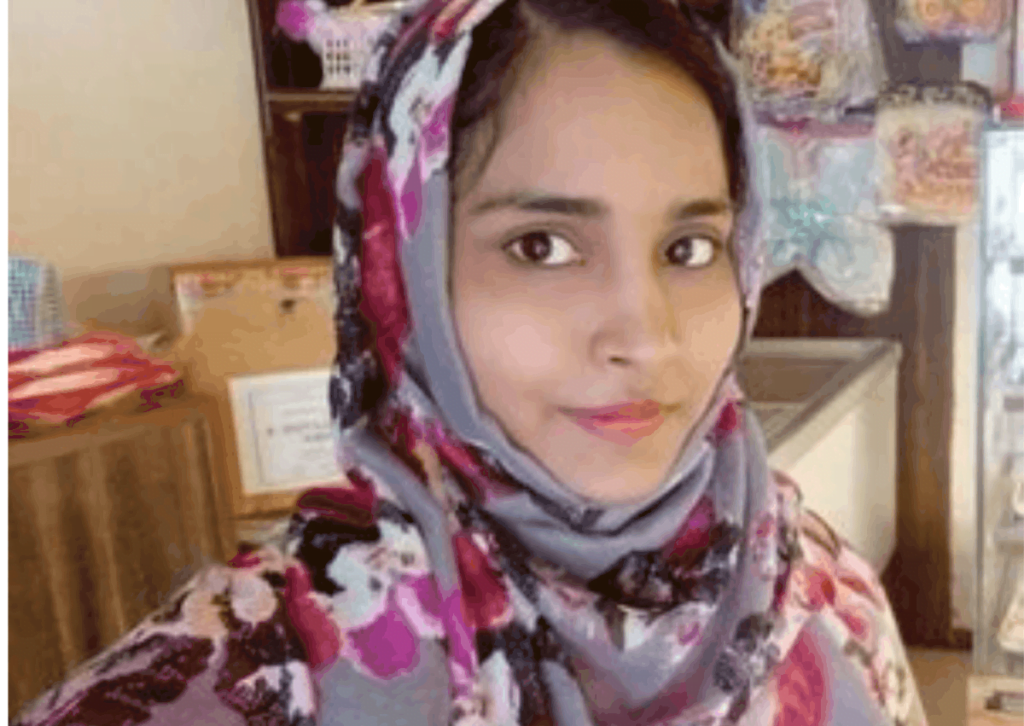
In fact, the UAPA is worse than both the earlier counter-terror legislations of India, the Terrorist & Disruptive Activities (Prevention) Act, 1985 (TADA) & Prevention of Terrorism Act, 2002 (POTA). Some of the most dangerous parts of the act include;
- A broad, subjective, and ambiguous definition of the term “terrorist act”.
- Possibility of arresting a “suspected person” based on “any document, article, or any other thing” and informing the suspect “as soon as may be”.
- Pre-charge detention of 180 days, even if the public prosecutor doesn’t furnish adequate evidence against the accused.
- The denial of bail based on the court’s discretion.
- Shift in the burden of proof onto the accused and denial of their right to remain silent.
- The ability of the Indian Government to freeze assets or prevent the entry of the accused into India based on mere suspicion.
This blatant misuse of power allows the police to slap bogus charges on anyone they want to implicate, detain them, and deny them bail without even an actual conviction. According to a report by the People’s Union for Civil Liberties (PUCL), 97.2% of UAPA accused are arrested for long periods of time to finally be acquitted of their charge. Using these loopholes, the Delhi Police has continued to keep Gulfisha behind bars for charges of “conspiracy” behind the violence of February 2020 in Delhi.
Her family is flabbergasted, because they thought that she was just one amongst a hundred other women silently making their demands heard against the CAA and NRC.
Her father, Tanseef Hussain, in a video circulating on Twitter, told people that he is depressed and lost at the thought of his daughter behind bars. He believes only in Allah’s hukum (God’s law) and doesn’t care for the corrupt legal system on earth.
Numerous social media campaigns and hashtags like #FreeGul have since emerged as a response to her arbitrary arrest. Several organisations have also come out in support of Gulfisha and have released a joint statement.
Her father’s pain was exasperated further by Gulfisha’s cries at her default bail hearing. She broke down and complained to the court that she was facing immense harassment by the authorities, who called her an “educated terrorist” and hurled communal slurs at her. She exclaimed to the judge, “I am facing mental harassment here. If I hurt myself, only jail authorities will be responsible for it”. Despite her pleas, she was refused bail, although, the court said that they will change the jail staff.
Also Read: Agony Of Natasha Narwal And Other Unlawfully Arrested Political Prisoners
Numerous social media campaigns and hashtags like #FreeGul have since emerged as a response to her arbitrary arrest. Several organisations have also come out in support of Gulfisha and have released a joint statement.
The statement raises pertinent questions and zealously asserts that “Her ‘crime’ is that she decided to speak out against a government and an ideology of hate that dehumanises and inflicts the most brutal violence on Muslim lives. Her ‘crime’ is that she believed and worked for the education, leadership, and emancipation of women who have been historically marginalised, that she dreamed of feminist citizenship. Her crime is that she loudly sang “nidaar azaad ho jayegi, woh toh naya zamaana layegi,” (fearlessly, she will be emancipated, she will bring a new tomorrow).
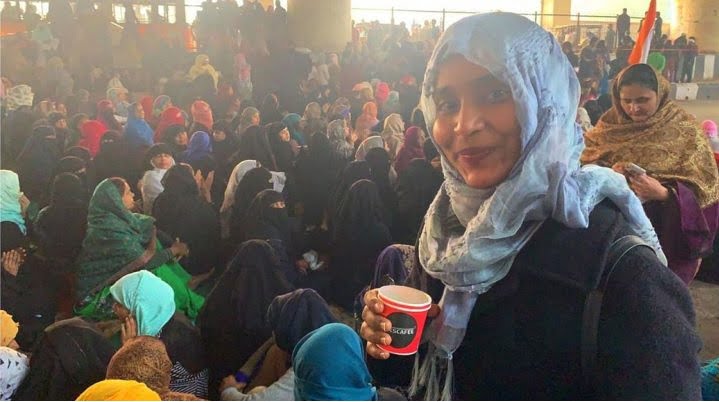
Gulfisha Fatima’s and every Indian’s freedom is currently dictated by the Indian Government’s prerogative. These jurisdictions and legal loopholes, along with problems with administration and abuse of power, have led to a suffocating chilling effect amongst Indians. It deters everyone, especially minorities and critics of the ruling Government, from exercising their right to free speech and expression and speaking out against the authoritarian, oppressive, and bigoted realities of the country. Moreover, these arrests, harassment, and intimidation tactics outright deny the humanity of those affected by the State’s wrath.
With almost daily news of another person either detained, booked, or threatened with the UAPA, people can get desensitised to the disturbing tyranny that minorities are currently facing every day. However, we have to remember, as Safoora Zargar mentioned in one of the reports, that “The loss that they [the incarcerated people] are facing now will never be compensated. Justice delayed is justice denied”. The traumatizing situation that many, like Gulfisha, are currently facing needs to continuously be denounced and fought against. We cannot let them erase the knowledge of these oppressive tactics from public memory.
